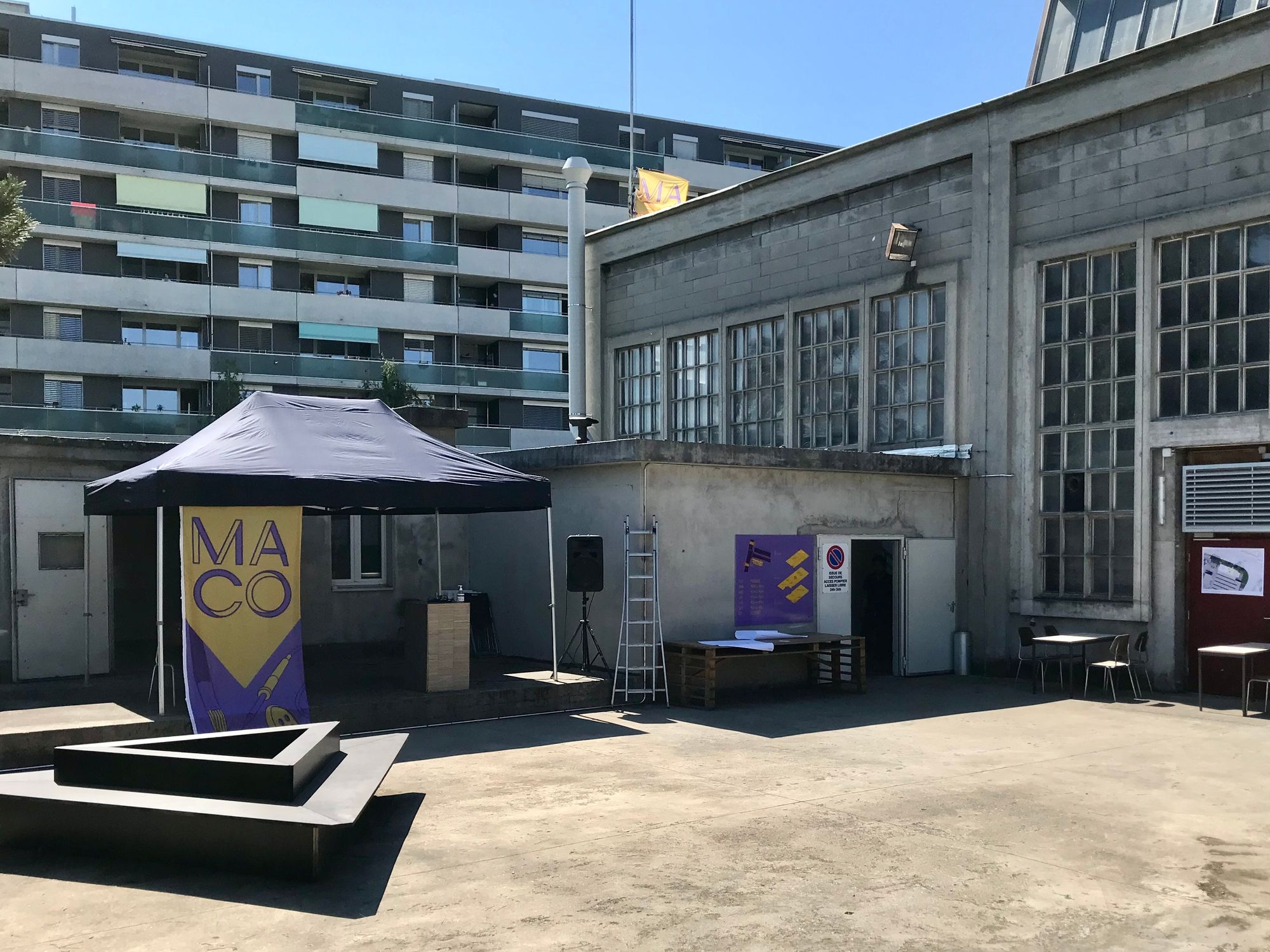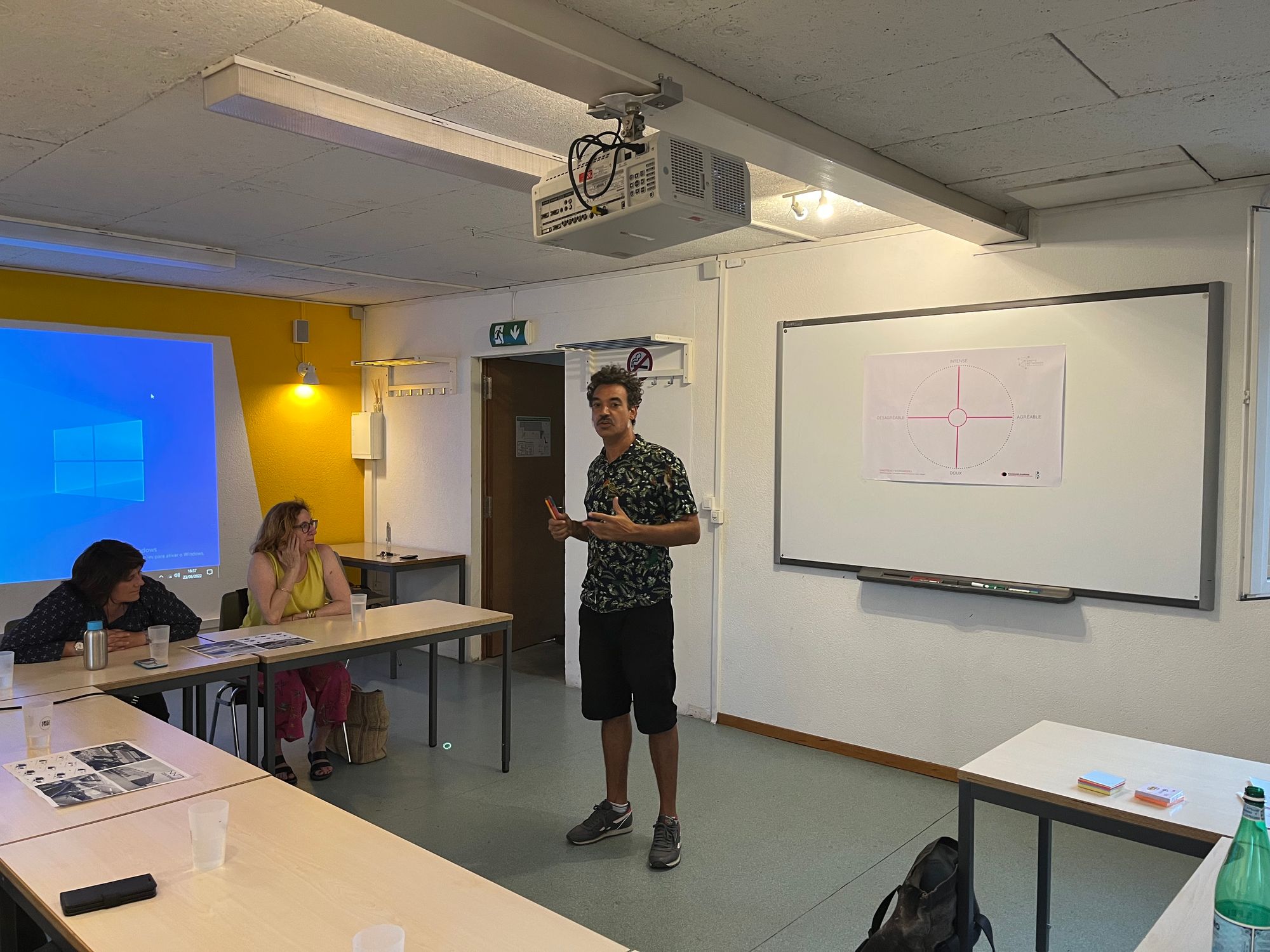In 2016, the municipality of Geneva initiated a participatory process aimed at revitalizing the ZIC (Industrial Zone of Charmilles) and integrating it into the social fabric of the city. This process involved a series of workshops with various stakeholders to explore new potential uses for the area, particularly its buildings. After several years of deliberation on how to redefine the ZIC and make it a thriving part of the city's urban landscape, the "La MACO" project emerged in 2019.
Spanning around 1,200 square meters and uniting five organizations, La MACO serves as an incubator for the ZIC, an innovation hub governed by shared principles, an economically sustainable model, and a pioneering venture in Geneva. Situated amidst an educational enclave featuring institutions such as the University of Art and Design HEAD, the Henry-Dunant School of General Culture, and various primary, secondary schools, and colleges, the MACO is part of a vibrant ecosystem.
This "third place," open to all, offers access to reused materials, tools, machines, skills, and expertise, fostering a community dedicated to self-manufacturing and employment. The MACO is underpinned by four core values:
Sharing: It encourages the pooling of both tangible and intangible resources.
Responsibility: Individuals are empowered to take charge of the production and consumption processes.
Sustainability: Resource optimization, rationalization, and a focus on lifecycle management are central.
Creativity: La MACO serves as a space for experimenting with novel production models and tools.
Conceived as an inclusive platform grounded in the principles of collaboration and sharing, the MACO offers a tangible alternative to conventional consumption patterns through an innovative ecosystem that champions circular economy and local production. Its primary objectives encompass:
- Acting as a bridge between local artisans, the industrial heritage of the ZIC, and the evolving neighborhood.
- Pioneering the concept of a "maison de la transition" (transition house) for French-speaking Switzerland, based on a shared public-private model.
- Serving as an urban manufacturing hub, promoting shared governance and circular economy principles.
- Providing insights to decision-makers and policymakers through its work.
Yet, it is essential to acknowledge that the MACO is an ongoing endeavor, characterized by continuous progress and innovation, with a transformative impact on society across five key dimensions:
- Collective Energy: By remaining open to the community and fostering collaboration among various stakeholders.
- Small Interventions: Implementing small-scale amenities in outdoor spaces to create a more communal environment.
- Community Building: Establishing strong connections with other site users and the broader area.
- Circular Economy: Involving all actors to maximize the use of local expertise and products for local consumption.
- Inclusive Platform: Promoting social integration based on collaborative values, making learning, creation, and experimentation accessible and affordable.
To fully embrace the three pillars of sustainable development - Social, Economic, and Environmental - the MACO's impact assessment revolves around:
Social Impacts:
- Facilitating exchanges and fostering social bonds through collective action.
- Transmitting and sharing knowledge and skills.
- Cultivating creativity and personal development through mutual inspiration.
- Enriching individuals by encouraging the exchange of skills and experiences.
- Instilling a sense of pleasure and satisfaction in collective work.
Environmental Impacts:
- Transforming our relationship with objects and materials, emphasizing sustainable resource use.
- Offering an alternative to overconsumption by promoting the responsible use of resources.
- Resource conservation through resource sharing.
- Raising awareness among the public, businesses, and institutions about sustainable practices.
- Demonstrating the feasibility and viability of concrete examples, setting the stage for replicability.
Economic Impacts
- Pioneering a new economic model.
- Driving innovation in manufacturing, distribution, and consumption.
- Serving as a laboratory for transitioning to more sustainable practices.
- Facilitating training and professionalization, incubating new organizational and governance models.
In summary, La MACO stands as a testament to the power of collaboration, sustainability, and innovation, bridging the past and the future while serving as a catalyst for positive change in Geneva's urban landscape.



